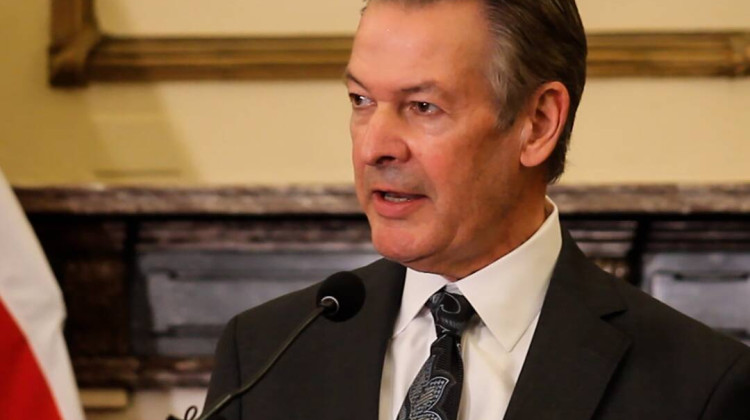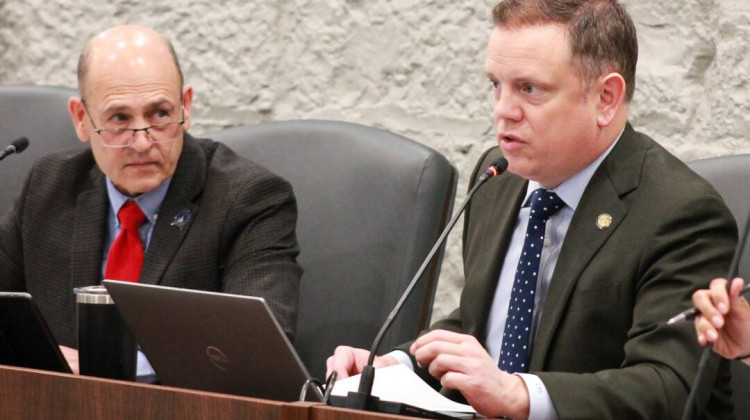
The author of the bill, Rep. Ethan Manning (R-Denver), said institutions with ESGs are discriminating against Indiana businesses like coal companies and firearm makers.
Brandon Smith/IPB NewsA bill that aims to cut ties between the state and financial institutions with certain ESGs is headed to the governor’s desk. ESGs are policies that consider the environmental or social impacts of their investments. Lawmakers have debated whether the bill would keep politics out of state pensions or add it in.
HB 1008 would require the state treasurer to make a list of financial investment managers with ESGs and provide evidence as to why the state shouldn’t invest its pension funds with them. The Indiana Public Retirement System then wouldn’t be allowed to have a contract with those managers.
But there would be some exceptions. The state could keep doing business with them if there wasn’t a comparable provider — or if ending that contract wouldn’t provide financial benefits for pensioners.
READ MORE: Indiana pays anti-ESG firm to advise on state pension funds
Join the conversation and sign up for the Indiana Two-Way. Text "Indiana" to 73224. Your comments and questions in response to our weekly text help us find the answers you need on statewide issues throughout the legislative session. And follow along with our bill tracker.
The author of the bill, Rep. Ethan Manning (R-Denver), said institutions with ESGs are discriminating against Indiana businesses like coal companies and firearm makers.
“ESG subjectively suppresses a free market by targeting industries for what they are without taking into account the impact on financial returns — which is what we ought to be focused on," he said.
But some say the bill itself brings politics into the state’s pension investments. Rep. Ryan Hatfield (D-Evansville) said the House voted down an amendment requiring Indiana to look at the rate of return on ESG investments.
“I don’t know what happened to that message — that no matter what we did in this building, that we were going to protect Hoosier retirees," he said.
A recent study commissioned for the climate advocacy group The Sunrise Project shows this kind of legislation can cost taxpayers millions of dollars. An earlier version of the bill was expected to cost state pensioners $6.7 billion, but that was reduced to $5.5 million after amendments.
The fiscal note on this latest version of the bill doesn't mention any losses, but it does say that the bill would increase the workload of INPRS staff — who are paid through those pension funds.
"INPRS may have increased trading costs and workload to change an investment manager or proxy advisor who violates the provisions of the bill due to an ESG commitment. Increased costs could be made up by lower fees or a higher rate of return by switching to a different manager," the fiscal note said.
Rebecca is our energy and environment reporter. Contact her at rthiele@iu.edu or follow her on Twitter at @beckythiele.
 DONATE
DONATE








 Support WFYI. We can't do it without you.
Support WFYI. We can't do it without you.